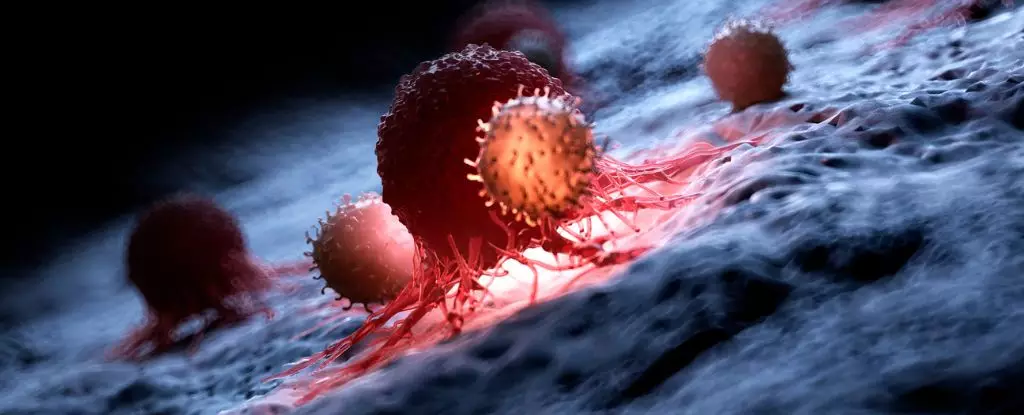In a groundbreaking study, scientists have discovered a revolutionary approach to combating cancer by blowing open the very ‘doors’ that lead to the heart of tumors, allowing for effective drug treatments. This innovative strategy involves the activation of a ‘timer bomb’ mechanism within the cells that line a tumor’s associated blood vessels. These vessels play a crucial role in controlling access to the tumor tissue, making it difficult for engineered immune cells to enter and fight against the cancer. By utilizing a death receptor called Fas, scientists have unlocked a therapeutic path forward that has been previously undervalued in cancer immunotherapy.
Until recently, Fas has been overlooked in the field of cancer immunotherapy, with no Fas antibody having made it to clinical trials. However, researchers from the University of California, Davis (UCD) and Indiana University have successfully identified specific antibodies that, when attached to Fas receptors, trigger the self-implosion of these cells. This breakthrough has the potential to revolutionize cancer treatment as it opens up new avenues for targeted therapies.
Solid tumors, often referred to as “cold tumors,” present a significant challenge in cancer treatment as they are resistant to immune cell infiltration. This resistance prevents the effective delivery of therapies such as CAR-T therapy, which involves programming a patient’s own T-cells to attack cancer cells. The inability of these engineered immune cells to penetrate the tumor microenvironment hinders their therapeutic effect. The researchers at UCD have addressed this challenge by developing engineered antibodies that effectively attach to Fas receptors and cause bystander cells to self-implode.
By utilizing the Fas ligand developed in their experiments, the researchers were able to engage critical parts of the Fas receptor, which hold great potential as future drug targets. The ability to target these receptor parts on bystander cells can significantly enhance the effectiveness of CAR-T therapy against solid tumors. However, the success of CAR-T therapy is heavily dependent on the Fas status of the patient, particularly the mutations surrounding the discovered epitope. It is crucial to determine a patient’s Fas status before considering CAR-T therapy, as it serves as a definitive marker for the effectiveness of bystander treatment.
The groundbreaking research conducted at UCD opens up new possibilities in cancer treatment and warrants further investigation. The identification of specific antibodies that can trigger the self-implosion of Fas receptors has laid the foundation for potential therapeutic advancements. Exploring the utilization of CAR-T therapy in combination with targeting the Fas receptor parts on bystander cells could revolutionize cancer treatment, particularly in the context of solid tumors. This research highlights the importance of understanding the intricate mechanisms within the tumor microenvironment to develop more effective treatment strategies.
The ability to detonate the ‘doors’ that lead to the core of cancerous tumors presents a paradigm shift in cancer treatment. By targeting the Fas receptor and effectively blowing open the access points to tumors, scientists have paved the way for optimized drug delivery and immune cell infiltration. The future of cancer treatment lies in unlocking the hidden potential of therapies such as CAR-T and leveraging the discoveries surrounding Fas receptors. As research progresses, it is essential to continue unraveling the complexities of tumor microenvironments to develop innovative and personalized treatment approaches that can overcome the challenges posed by solid tumors.


Leave a Reply